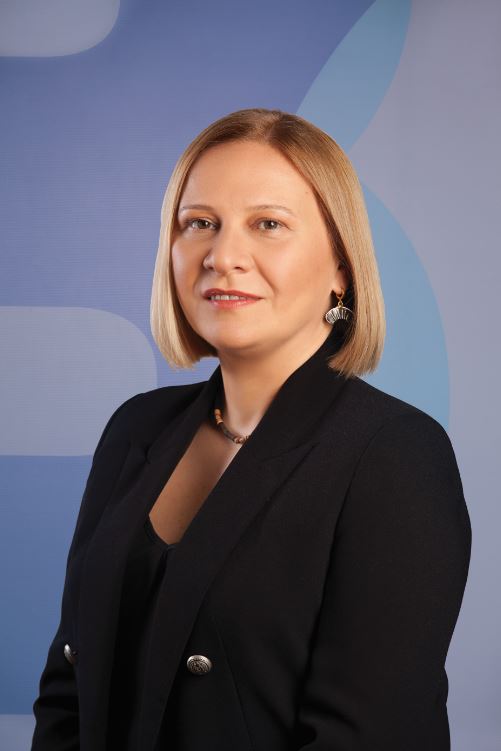AmCham to Support the Education System of Georgia

The American Chamber of Commerce in Georgia (AmCham) is the largest international business Chamber in the country, which unites more than 230 member companies. Founded in 1998, AmCham’s main goal is to promote US-Georgia ties and improve the business environment in Georgia.
AmCham works in a variety of dimentions. Among them, the Chamber has established a University Scholarship Program, which provides students from low-income and socially vulnerable families with the opportunity to receive higher education. AmCham believes that the field of education in Georgia is in critical need of international assistance.

The Executive Director of AmCham, George Welton, talks about the challenges of the education system in Georgia and the importance of international support.
How do you see the development of the education system in Georgia and addressing the shortage of skilled labor from the business perspective?
Actually, I think that the education system in Georgia has improved in some notable ways over the 20yrs that I have been in the country. Universities, in particular, have become a lot better. In the secondary system, there are also some great teachers, working hard and doing a great job under difficult circumstances. But, there are still big holes. K12 education is still incredibly under-resourced and rural school face particular challenges. Vocational education still has huge problems and is not even close to producing people trained and ready for the market. As a result, the shortage of skilled labor is one of the biggest hurdles to Georgian economic development.
What needs to be done to align the education system with employers’ actual skills needs and enhance competitiveness? And how will it improve the investment and business environment?
That is a very difficult question. For many years, there has been a lot of talk about ‘engaging with the private sector’ but it does not seem to have created many positive material consequences. I think that private sector engagement may need to mean ownership in some way. Private sector entities may need to actual take control of provision – probably with some kind of subsidy from the government.
What is the role of international programs and foreign students in the development Georgian Education Sector?
There are few, if any, sectors of the international economy in Georgia that have not needed international input to develop. Education will undoubtedly need international input to improve quickly and provide the right level of development. Foreign students play a different role. They can have a good cultural impact in terms of injecting higher expectations, but their real benefit is financial. Foreign students are generally less price sensitive, so one can charge them more. That allows institutions to cross subsidize local students.
AmCham launched a university scholarship program. The program aims to offer students from low-income and disadvantaged families an opportunity to pursue higher education. Could you tell us more about the main aim of the scholarship?
Very simply, the scholarship was developed because we know that there are very few mechanisms in Georgia through which students from disadvantaged backgrounds can receive support for living expenses. Government scholarships only cover tuition fees. So, we wanted to support students for whom that was not enough. Also, there is a strong consensus in the business community that education is incredibly important. But the challenges facing companies who want to provide scholarships can be considerable – as they have to advertise, select students, administer the finances, figure out how to give money without incurring taxes for the business or the student, support those students. We wanted to make it easy for businesses to support students. Our program is currently supporting 30 students and we hope to grow from here.
Why development of sustainable finance is important for the country and society? And why is it important for the development of investment climate in the country?
I am not sure what ‘sustainable finance’ means here. If you mean ‘climate change-oriented finance’ – I think it’s incredibly important. Developing countries are very price sensitive, which makes it difficult to convince people to adopt more expensive but more renewable options. Finance can be the key, since lower interest loans to cover more renewable options, like better insulated apartments, or more renewable energy sources, are crucial to changing the price signaling and making these projects viable.
How can financial strategies, investments, and practices drive positive change, promote environmental sustainability, and contribute to a resilient global economy?
Wow. That’s a big question? I think that the simple answer is that Georgia is an upper middle-income country and, as such, is incredibly well placed to play a disproportionate role in helping support the transition. More than 2/3 of the global population are in middle-income countries – these countries are far more resource constrained in their ability to make a just transition. It will be vital to figure out strategies to change incentive structures and mobilize private sector resources, particularly in these countries. Georgia as a fairly small and historically nimble country, when it comes to economics, would be well placed to try out some different strategies.

As an EU-candidate status, on the edge of the EU, with huge opportunities for renewable energy, Georgia is incredibly well placed to leverage this position to push forward its growth – creating jobs and good livelihoods, at the same time as it makes Georgia a nicer place to live. That seems like a good goal for all of us.
Where do you see IFIs involvement, and how can Amcham support in this important endeavor?
IFIs can be incredibly important because they have the resources and the remit to push for the right kind of change. The major IFIs in Georgia – World Bank, Asian Development Bank, EBRD, EIB, KfW, American DFC, the French Development bank, and others, between them distribute far more money than the development organizations like USAID, EUAID, the UN etc. Most of them now consider themselves incredibly committed to climate change adjustments. Therefore, they can have a huge impact. AmCham supports this in a range of ways but, in particular, works with the IFIs on the Investors Council, where we work collectively for changes in business enabling environment.
What are your recommendations for businesses and governments in terms of sustainable finance and implementation of SDG Agenda 2030? What would you say about Georgia’s sustainable future?
Again – a big question. I think that the SDGs obviously outline the requirements of economic development, to achieve a just and sustainable future. But, more than that, Georgia is incredibly well placed to do develop even faster BECAUSE it chooses to take a sustainable path. As an EU-candidate status, on the edge of the EU, with huge opportunities for renewable energy, Georgia is incredibly well placed to leverage this position to push forward its growth – creating jobs and good livelihoods, at the same time as it makes Georgia a nicer place to live. That seems like a good goal for all of us.




 Search
Search





